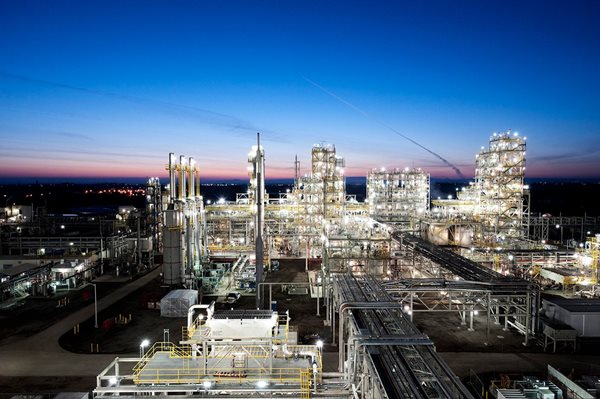From pv magazine USA
Hanwha Solutions announces stepped up efforts to supply customers with “Made-in-America” products. Hanwha, the Korean company that owns Q CELLS, launched this effort by becoming the largest shareholder of REC Silicon, a major US manufacturer of polysilicon.
Following its initial $160 million acquisition to acquire a 16.67% stake in REC Silicon in January 2022, Hanwha is acquiring an additional 4.67% stake from Aker Horizons in a deal valued at around $44 million. This investment will help American manufacturers secure the raw material critical to the solar supply chain.
“Our commitment to the U.S. is more serious than ever before,” said Justin Lee, CEO of Q CELLS. “We plan to make investments to secure capabilities across the entire solar supply chain, with the goal of supplying our partners with ‘Made in America’ products that will help the U.S. regain its leadership in clean energy solutions.”
In the announcement, Hanwha indicated that it intends to make additional investments in virtually every sub-sector of the US solar manufacturing industry, ranging from key raw materials like polysilicon to fully assembled solar modules. The company currently operates the largest module production facility in the US through its solar panel business unit, Q CELLS. The Georgia factory can produce 1.7GW of solar modules per year, accounting for nearly 20% of total module production capacity in the US.
Hanwha’s US initiative supports the Biden administration’s efforts to increase solar power generation by 40% and to decarbonize all electricity by 2035. Hanwha sees the enactment of the Solar Energy Manufacturing Act (SEMA) as critical to a US-based solar supply chain. Once passed by the Senate and signed into law by President Biden, the legislation is intended to boost America’s panel manufacturing capacity and create jobs. The SEMA Coalition, representing American solar manufacturers supporting the legislation, said in a letter to President Biden, that the bill would add more than 30GW to domestic solar manufacturing capacity in the US by 2025, creating 18,000 direct and 60,000 indirect manufacturing jobs. Hanwha stated in its announcement that once SEMA is passed, the company “will implement a multi-phase, multi-billion-dollar expansion across the full solar energy supply chain”.
Popular content
“Enacting SEMA is key to fulfilling our pledge to rebuild the U.S. solar supply chain with fully ‘Made in America’ products,” said the Hanwha Solutions spokesperson. “With a long term plan to support domestic solar manufacturing, we can help America lead the clean energy revolution and win the fight against climate change.”
Hanwha’s investment is also expected to add a substantial number of well-paying, local renewable energy jobs across America. Hanwha currently employs up to 750 staff in its Q-CELL production facility in Georgia.
“We imagine a Moses Lake factory brought back to life with local workers clocking in and operating the plant,” said a Hanwha spokesperson, referring to the currently idle REC factory, which is planned to reopen in 2023. “Together with our module factory in Georgia and new planned investments, we will fulfill our pledge to create quality clean energy manufacturing jobs across the United States.
Completion of the REC Solar transaction with Aker Horizons is scheduled in May 2022, subject to a customary anti-trust filing in the US. REC Silicon is expected to become operational in 2023.
This content is protected by copyright and may not be reused. If you want to cooperate with us and would like to reuse some of our content, please contact: editors@pv-magazine.com.



9 comments
By submitting this form you agree to pv magazine using your data for the purposes of publishing your comment.
Your personal data will only be disclosed or otherwise transmitted to third parties for the purposes of spam filtering or if this is necessary for technical maintenance of the website. Any other transfer to third parties will not take place unless this is justified on the basis of applicable data protection regulations or if pv magazine is legally obliged to do so.
You may revoke this consent at any time with effect for the future, in which case your personal data will be deleted immediately. Otherwise, your data will be deleted if pv magazine has processed your request or the purpose of data storage is fulfilled.
Further information on data privacy can be found in our Data Protection Policy.